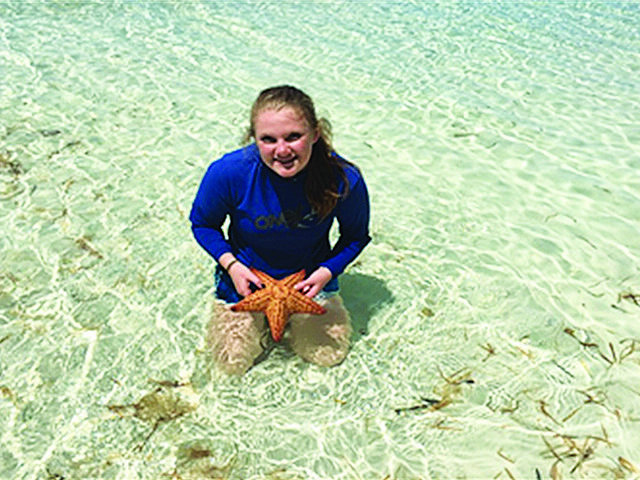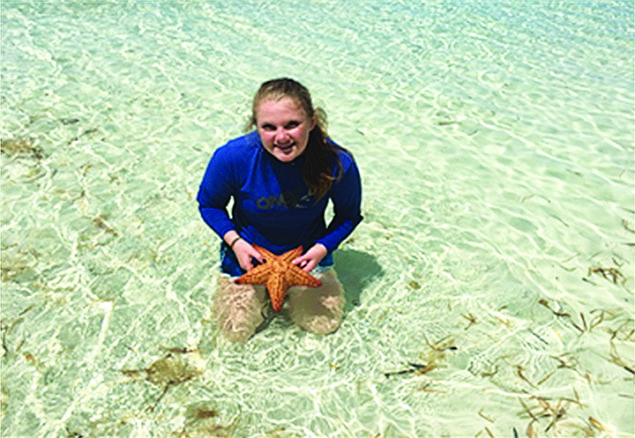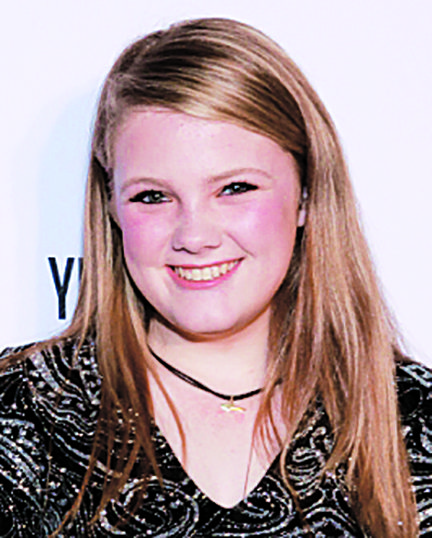With high school graduation a few weeks away I’ve been thinking a lot about my experiences in the classroom as well as what I’ve learned while exploring our magnificent environment and the challenges that our ecology and society will face in my generation’s future. I’ve been fortunate to have hiked to the top of a volcano in the Andes Mountains, swam with Giant Manta Rays at night in Hawaii, chased White Tip Sharks over a coral reef in the Galapagos, slept under a sky illuminated by millions of stars in the Everglades and on an Indian Reservation in South Dakota, and watched lions, elephants, and giraffes roam in the wild while on safari in Africa.
And along the way I’ve been inspired by my teachers, the people I’ve met around the world, my family and friends here at home and most certainly the things I’ve seen in our beautiful, natural world, especially those related to the water. Whether the marshes of the Everglades and our colorful coral reefs, or our sandy shores and whimsical mangrove habitats, it is the water that always touches my soul.
My travels and explorations aside, there’s truly no place like home and its fair to say that my educational experiences, as well as our region’s challenges, have influenced my decision to continue my education, and my work, right here in South Florida. And I could not be more excited. In fact, I can’t think of a better place to study marine biology and the environment, much less to have an impact on shaping our future, than in this special place.
Biscayne Bay and the Atlantic Ocean beyond it are being assaulted by South Florida’s growth and our community’s growing desire for fuel from Turkey Point’s antiquated nuclear power plant. Staying in South Florida allows me to work on solutions related to FP&L’s over-heated cooling canals that are leaking tritium, a toxic nuclear chemical, into the helpless waters off of our coast.
And speaking of power, much works needs to be done in our state so as to widely implement solar power so as to turn The Sunshine State into The Solar State. If successful, my generation has the opportunity to lead Florida into a sustainable future that holds the promise of producing an estimated 50% of our power needs from the sun.
As Biscayne Bay ends and the Florida Keys begin, the Florida Keys National Marine Sanctuary is home of the third largest living coral barrier reef system in the world. Our reef is home to over 500 amazing marine animals and plays a vital, but often hidden, role in South Florida’s environment and society. The reef impacts our region’s tourism industry, is habitat and home to an array of animals found in few places on earth, acts as an abundant food source to help feed us and is a natural barrier from destructive hurricanes, yet this spectacular ecosystem is at risk of extinction. Man-made pollution from the carbon dioxide that is being poured into our oceans has led to acidification which is bleaching and, thus, killing this majestic organism. I am looking forward to working to protect what is easily one of South Florida’s most special habitats.
And speaking of habitats, the only Everglades on earth is home to an incredible array of unique creatures and their homes that, together, comprise one of the most magical places on our planet. In a world filled with cell phones and downloads one only need to spend a few moments in the tranquility of the Everglades to see and hear what a treasure it is for all of South Florida. Unfortunately, the Everglades is also under attack. Encroaching development from Florida’s 20 million residents, water polluted by man-made fertilizer that’s dumped and drained into our waters, and rising sea levels from our global climate crisis, amongst other threats, places the survival of the Everglades at the top of our local list of critical environmental challenges.
Our warming climate and sea level rise places our entire region at risk, and the damage has already begun. Our society must shift from our current fossil fueled economy to one based on sustainable energy or else places like Miami Beach, Key Biscayne, the Everglades and the Florida Keys will simply disappear. 97% of all scientists agree that man-made pollution is warming our climate and forecasts predict that oceans will rise three to six feet, or more, over the next few decades unless we change our ways. South Florida is already seeing the early impact of sea level rise and we are approaching a tipping point where trillions of dollars of real estate improvements and infrastructure, much less our economy, its’ tax basis and environment could be lost unless mankind changes its ways.
While many of these challenges are significant and even verge on ominous, I am confident that my generation has the passion, creativity and fortitude to solve them. Mankind has faced countless challenges ranging from famine, to wars, to space travel, and I am certain that South Florida is worth our best effort and investment to protect it and I look forward to helping lead the way.
So as I step away from one campus to another a few miles across town I say thanks to my teachers, family and friends who understand how important our tropical marine environment is to me and who have so kindly supported and shaped me. You have instilled into me a passion for our beautiful natural world that will last a lifetime and for that I am truly grateful.
Delaney Reynolds is a senior at Miami’s Palmer Trinity School. She is the founder of The Sink or Swim Project (www.miamisearise.com) and was recently honored by The National Geographic Society with its Inaugural Global Teen Service Award. In the fall she will attend the University of Miami’s Rosenstiel School of Marine & Atmospheric Science on a Singer Scholarship as a Foote Fellow.








